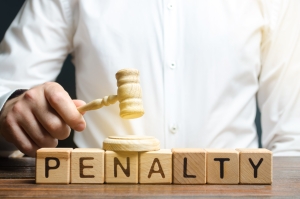What are the conditions in which Google de-ranks a website on SEO?
Many factors go into Google’s decision to de-rank a website on SEO. They include the site’s content, the relevance of the website, and the quality of links pointing to it.
On the other hand, there are some cases when Google de-ranks websites on SEO without giving any reasons. This is usually because they have violated their guidelines and policies somehow.
This paper will explore how Google ranks websites on search engine results pages and what conditions determine whether a website will be de-ranked.
4 SEO Conditions That Can Lead to a De-Ranking on Google Search Results
Search engine optimization is a complicated process requiring much time and effort. The process is also very subjective, meaning it can be challenging to determine when you are doing things correctly or not.
Four significant factors can lead to a de-ranking on Google search results:
– Poor site architecture: A website without a page with a call to action, such as an opt-in or contact form, is considered poorly architected. Hiding the call to action on the landing page is often done on purpose due to better conversion rates and less competition for the visitor’s attention. This also makes it difficult for Googlebot to crawl and index content properly.
– Unnatural link profiles: While unnatural link profiles can include links from domains that aren’t closely related (e.g., an e-commerce site linking to a blog), this can be avoided by using canonicalization and only linking to your domain.
– Low-quality content: Low-quality content includes duplicate, low-quality, and poor-value links.
– Low site relevancy: This factor is responsible for de-ranking sites irrelevant to the searcher’s query. It’s possible to rank better on Google search results by taking specific measures such as canonicalizing and using SEO tools like Searchmetrics.
Do you know the most common ways that your site is penalized by Google?

Google has a wide range of algorithms that penalize sites for various reasons. In this article, we will discuss the most common ways that your site is penalized by Google. If you want to know how to avoid these penalties, then read on. Google’s algorithm changes are never good for SEOs and content creators who work with Google search engines. The reason is that it changes the way in which it ranks websites and penalizes sites that don’t follow its guidelines.
The following are some of the most common ways in which your site can be penalized by Google:
– Not having a website URL or domain name: A site that doesn’t have a website URL or domain name will be penalized by Google, and this penalty will likely appear in the SERP. To avoid this penalty register a domain name. This will eliminate any confusion regarding your site’s location among those who use search engines. There are many affordable ways to register domains according to your budget.
– Not having an HTTPS connection: This acronym for ‘secure’ indicates that a site is well protected and safe to browse. To avoid future penalties, it’s best to use this protocol the next time you update your site.
– Not using canonical links: “Canonical,” which stands for “original.” The link should point to the site’s original, canonical URL. This is done by adding a “rel=”canonical” attribute on the tag.
– Not using rich snippets: Rich snippets are the information that shows up when an article is being read. These fields will appear in the search result and indicate what a site offers, such as their price or if they accept PayPal.
– Duplicate content: This is a content issue that would show up when a site is found to have duplicate content. This means the exact text, photo, or video has been found on multiple websites.
– Keyword stuffing: This is a content issue that would show up when a site is found to have keyword stuffing. This means the exact text or phrase has been repeated multiple times on the same page.
– Not using the sitemap: This is a content issue where the website does not have its own sitemap. This means the website needs to be appropriately organized, which means that search engines cannot index the pages correctly.
5 Ways How to Avoid Site Penalization and Stay Safe on Google Search Results

Google’s algorithms are constantly changing and evolving. These changes can be good or bad for any given website. However, there are ways to avoid penalties and stay safe in the search engine results pages (SERPs).
- Be mindful of your meta descriptions: If your site doesn’t have a meta description, Google will use its algorithm to determine what this should say. This is one of the most critical areas of SEO that you should focus on and ensure that it is optimized for the search engine results page (SERP).
- Ensure your website has a sitemap: Google has been using sitemaps since 2004 to help users find valuable information on websites. It also helps them with their algorithm by providing them with a list of all the pages on a website so they can find content more easily without having to visit every single webpage manually.
- Use HTTPS: Google has been pushing websites to use HTTPS more often because it improves performance for both the website and Google. SSL certificates encrypt communications between Googlebot, improving latency and providing greater accuracy in crawling and indexing.
- Use canonical URLs: Google uses the URL of your website to determine its ranking on SERPs. You will be penalized if you have duplicate content within your site because the search engine algorithm considers this a low-quality website.
- Optimize your website for mobile users: If you have a mobile-friendly website, Google will be more likely to rank it highly on SERPs because of the use of responsive design, which makes it easier for a phone or tablet user to navigate.